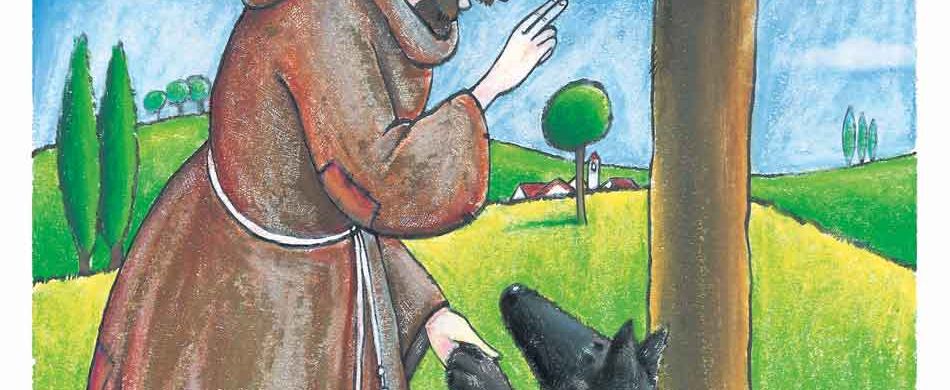IN A FEW days, on October 4, we will celebrate the feast of one of the greatest and true peacemakers of all times: St Francis of Assisi. In a recent meeting on peace with Orthodox, Jewish, Protestant, Armenian and Muslim clerics in Sofia, Bulgaria, Pope Francis said, “We have prayed for peace in words inspired by St Francis, who was so greatly in love with God, the Creator and Father of all. A love that he showed with similar passion and deep respect for the beauty of creation and for those whom he encountered on his pilgrim way… That love also led St Francis to become a true peacemaker.”
The choice of the Poor Man of Assisi as a prophet of peace is not, however, a recent discovery. St Bonaventure, who wrote an official biography of the Saint in 1260, defined him as “an angel of peace,” and before him Thomas of Celano wrote, in his Vita Prima, “He always most devoutly announced peace to men and women, to all he met and overtook. For this reason many who hated peace, and had hated also salvation, through the cooperation of the Lord, embraced peace with all their heart, and were made children of peace…”
Yet peace is never restored to any situation unless we are willing to forgive. In fact for St Francis the essential condition of peace is forgiveness, and it was certainly the strategy of forgiveness that opened the doors to his actions in favor of peace. At the beginning of their extraordinary adventure in living the Gospel, when Francis and his companions inspired more questions than admiration, they were often mistreated and covered with insults; and they “forgave them with all their heart, saying ‘May God forgive you,’” recounts The Legend of the Three Companions, a biography of the Saint narrated by three of his friars.
The episode of the Wolf of Gubbio, found in The Little Flowers of Saint Francis, also helps us to understand that peace is the fruit of forgiveness; in fact the Saint asked the inhabitants of the city to forgive Brother Wolf of all the evil it had brought them.
For Francis, however, the gift of peace is not something that comes out of good will, but it is the fruit of divine revelation, and in fact in his Testament he states, “God revealed a form of greeting to me, telling me that we should say ‘May the Lord give you peace.’” This greeting expresses the meaning of his life, that is, the evangelical life of peace and reconciliation. And, in this Gospel of life, Francis gave his brothers the same instruction that Jesus had given his Apostles, “Go, my dearest brothers, two by two into various parts of the world, announcing to men peace and repentance unto the forgiveness of sins.” Then he added, “Since you speak of peace, all the more so must you have it in your hearts. We have been called to heal wounds, to unite what has fallen apart, and to bring home those who have lost their way.”
Most of us are familiar with John Lennon’s legendary song, Imagine, and more than once we have all recited the famous prayer of St Francis Lord, make me an instrument of your peace. Therefore let us not just imagine making this world a better place, let’s actually make it better. How? By following in the footsteps of St Francis, by becoming a peace-maker, and artisan of peace, because, as Pope Francis underlined during the meeting of peace in Bulgaria, “Peace is both a gift and a task; it must be implored and worked for, received as a blessing and constantly sought for as we strive daily to build a culture in which peace is respected as a fundamental right.”
May St Francis grant to all of us the grace to love and live the gift of peace and goodness with all the people around us!
We, the friars of the Basilica of St Anthony, wish you every blessing and good wish on the feast of St Francis, and we thank you for your continued prayers and support of our chartable initiatives.




